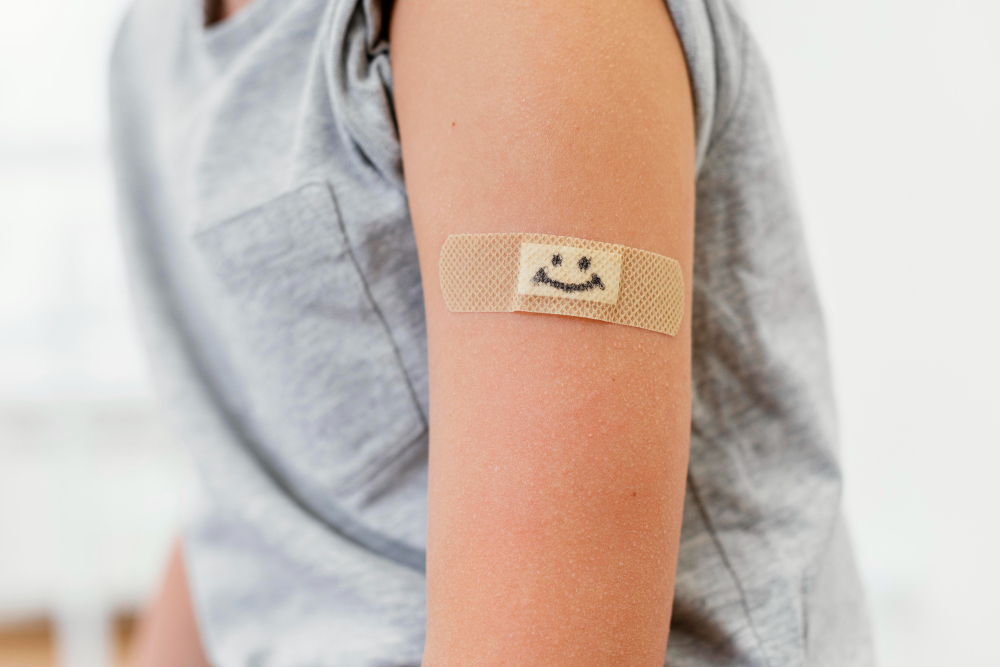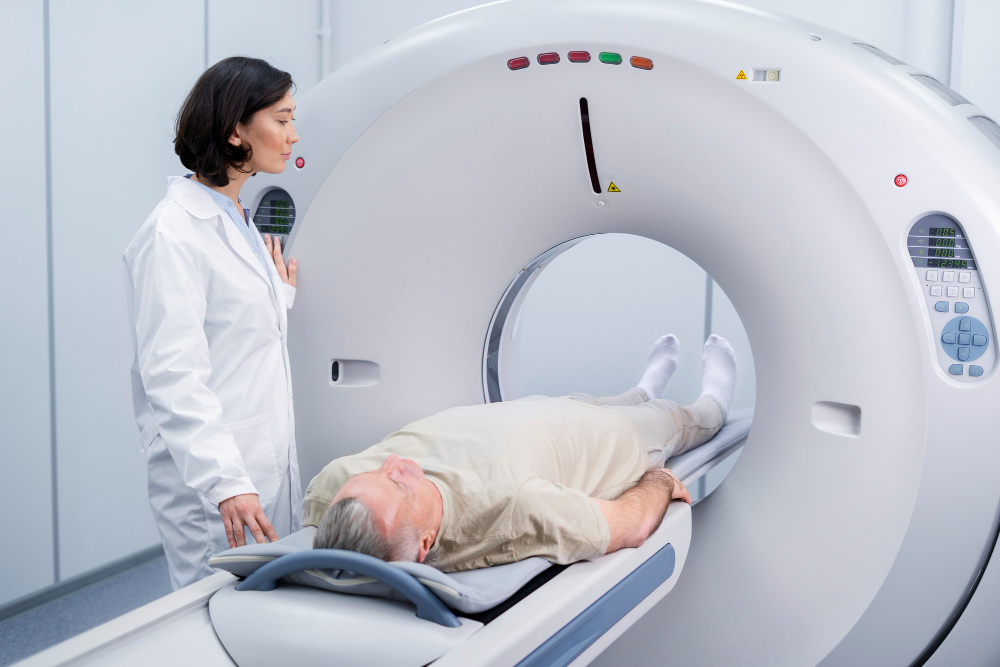A report from the non-profit organization Health Care Without Harm reveals that the climate footprint of the health sector is equivalent to the annual emissions of 514 coal-fired power plants.
If it were a country, it would be the fifth largest emitter of greenhouse gases in the world.
Below, we present some sustainable projects that also protect the health of the planet.
Biodegradable bandages

The impact a small Band-Aid can have on the environment is staggering, as it can take at least 150 years to degrade, according to Primicias.
A group of students from the Universidad Espiritu Santo (UEES) decided to find a sustainable alternative to this problem and created an algae-based bandage.
His proposal, called BIOALGÆ, earned them recognition in the prestigious Hult Prize competition, which brings together universities from more than 120 countries and awards $1 million in seed capital.
In their proposal, they emphasize that their product has natural properties and offers a lower production cost. While a conventional band-aid can cost between 0.23 and 0.25 cents, the team has managed to develop an alternative that could cost as little as 0.10 cents.
These students' breakthrough was how to create biodegradable polymers from brown and red algae, which are large, naturally occurring macromolecules.
These polymers are used to make BIOALGÆ bandages, an eco-friendly product that is not only low-cost but also biodegradable and environmentally friendly, Primicias reported.
This advancement not only improves affordability but also reduces environmental impact, offering a much more sustainable option than conventional Band-Aids, which take centuries to degrade.
On the other hand, there are innovative bandages, such as those made by PATCH, a brand founded in 2017 that specializes in creating 100% compostable, hypoallergenic, plastic- and toxin-free products. They are also suitable for sensitive skin.
These bandages are made from bamboo, a natural material that is effective for treating small wounds, allows the skin to breathe better than a conventional bandage, and is highly sustainable.
Bamboo is a plant with strong, flexible fibers that can be processed to create fabrics or materials similar to cotton or rayon, which are soft and comfortable against the skin. These fibers can be used to make bandages or bandages that fit well and last.
The bamboo used in PATCH Band-Aids is a renewable resource that grows faster than trees, requires less water, and requires no pesticides or herbicides to grow.
These band-aids are not only a first aid product, but also a natural and comfortable for those who wish to avoid chemicals in their daily lives. PATCH has managed to combine the functionality with the sustainability, offering an eco-friendly solution for the care of minor wounds, abrasions and cuts.
Biodegradable masks

The COVID-19 pandemic has brought with it a growing need for disposable masks, the production and disposal of which have had a significant environmental impact. According to OceansAsia, approximately 1.56 billion masks were dumped into the oceans in 2020 alone, equivalent to more than 5,000 tons of polluting plastic.
However, a new eco-friendly alternative is making a difference. According to The vanguard, he Institute of Agrochemistry and Food Technology of Spain has developed masks made with cotton paper and corn-derived materials, both compostable.
These masks are not only more environmentally friendly, but they also have a high filtration capacity for bacteria and viruses, while maintaining excellent breathability for the user. This innovation offers a solution that protects both people's health and the planet's by reducing the impact of single-use plastics.
Papaya toothpaste

The Monopolitan reports that people are unaware of the ingredients in toothpaste, including antibacterial agents, artificial sweeteners, petrochemicals, and artificial colors.
The Happier brand found a solution to this problem. In 2019, it created a toothpaste made with four types of mint, mineral essences to harden teeth, vitamin E, and papaya enzymes. These elements are considered biodegradable, making them more environmentally friendly.
An energy-saving CT scanner

Sustainability is also transforming the world of medical technology. Imaging equipment such as CT scanners, which have traditionally required high energy consumption, is now evolving toward more efficient solutions that seek to reduce their environmental impact without compromising diagnostic quality.
A prominent example is the Somatom Definition Flash CT of Siemens Healthineers, a CT scanner that has two X-ray tubes that rotate simultaneously around the patient, allowing high-quality images to be obtained in less time.
This technology not only improves accuracy, but is also more environmentally friendly: consumes 45 % less energy than its previous version Y reduces energy expenditure by 85% in cardiac studies, according to reports The Hospital.
Medicinal garden

According to The Monopolitan, a business encyclopedia, the London-based Urban Physic Garden was born with the goal of becoming a natural laboratory.
This space functions as a collaborative medicinal garden, where various species of healing plants historically used by different cultures to treat illnesses grow.
It's a learning center open to the public, promoting research, the conservation of endangered flora, and experimentation in natural medicine. Here you can find plants ranging from lavender and chamomile to lesser-known species essential to traditional medicine.
Its design is inspired by the structure of a hospital, with areas dedicated to different organs and systems of the human body, allowing visitors to better understand how each plant affects the body.
The Urban Physic Garden not only invites us to reconnect with the ancestral knowledge of plants, but also offers a sustainable alternative to conventional medicine, reminding us that health often begins in the earth.
In short, the convergence of medical innovation and sustainability is not only possible, but also beneficial for human health and the planet.
At a crucial time when we are combating climate change and pollution, these initiatives are presented as an ideal alternative.
It's time to continue promoting and supporting this integrated approach, as it represents a significant step toward a healthier and more sustainable future for all.













